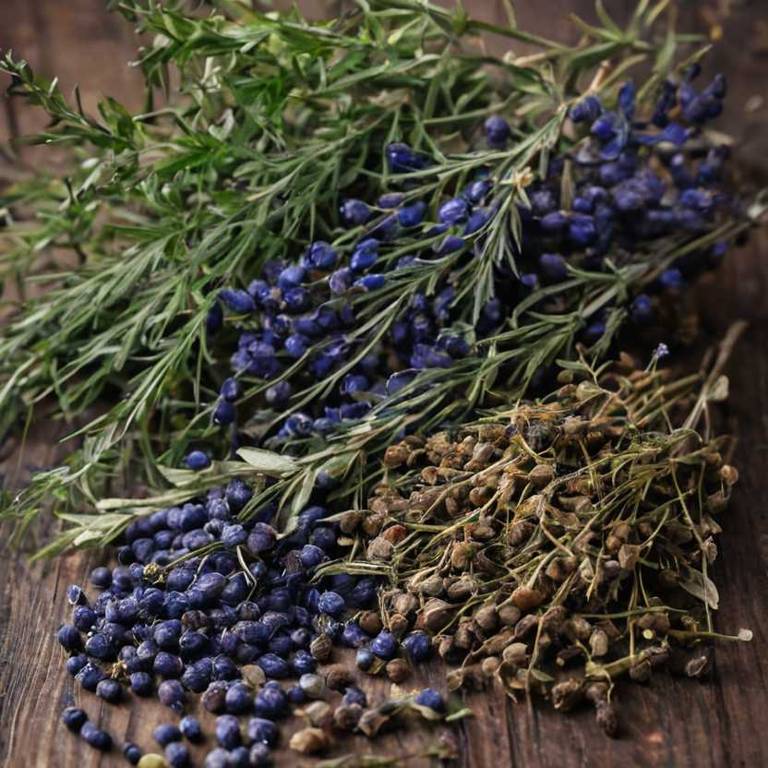By Leen Randell
Updated: Jul 07, 2024
What Are The Medicinal Properties Of Prunus Spinosa (Sloe)?

Prunus spinosa, also known as sloe, has health benefits such as treating digestive issues, reducing inflammation, and improving cardiovascular health.
The medicinal constituents of sloe include anthocyanins, flavonoids, and tannins, which are responsible for its antioxidant and anti-inflammatory properties. Medicinal preparations of sloe include jams, wines, and tinctures, which are used to treat various health conditions. Possible side effects of consuming sloe include gastrointestinal upset and allergic reactions in some individuals.
It is essential to consult with a healthcare professional before using sloe products, especially for pregnant or breastfeeding women.
This article explains the health benefits, active constituents, medicinal preparations, possible side effects, and precautions related to Prunus spinosa.
What are the health benefits of Prunus spinosa?
Prunus spinosa, also known as sloe, has health benefits such as reducing inflammation and improving heart health due to its high antioxidant content.
The fruit, in particular, is rich in anthocyanins, which have been shown to lower blood pressure and cholesterol levels. Additionally, the plant's leaves and stems contain salicylic acid, a compound similar to aspirin that can help alleviate pain and reduce fever.
Regular consumption may also support digestion and reduce the risk of certain diseases.
Here's a detailed article about the 10 health benefits of Prunus spinosa.
What are the active constituents of Prunus spinosa?
Prunus spinosa, also known as sloe, has active constituents such as anthocyanins, phenolic acids, and flavonoids.
These compounds contribute to its medicinal properties, including anti-inflammatory and antioxidant effects. The fruit's anthocyanins have been shown to inhibit lipid peroxidation and protect against oxidative stress, while its phenolic acids may have antimicrobial and anti-diarrheal properties.
The overall profile of constituents suggests potential benefits for cardiovascular and gastrointestinal health.
Here's a detailed article about the 10 active constituents of Prunus spinosa.
What are the medicinal preparations of Prunus spinosa?
Prunus spinosa, also known as sloe, has medicinal preparations such as jams, syrups, and teas made from its fruit, which contain anthocyanins and other bioactive compounds.
These preparations are used to treat digestive issues, diarrhea, and urinary tract problems, due to their anti-inflammatory and astringent properties.
Additionally, the fruit is said to possess antioxidant and antimicrobial effects, although more research is needed to confirm its efficacy for specific health conditions.
Here's a detailed article about the 10 medicinal preparations of Prunus spinosa.
What are the possible side effect of using Prunus spinosa improperly?
Improper use of Prunus spinosa, also known as sloe, increases the chances of experiencing side effects such as gastrointestinal upset, nausea, and vomiting due to its high anthocyanin and tannin content.
High doses may also lead to allergic reactions, diarrhea, and increased heart rate.
Furthermore, pregnant and breastfeeding women should avoid consuming sloe, as it may stimulate uterine contractions and affect milk production.
Here's a detailed article about the 10 most common side effects of Prunus spinosa.
What precautions to take when using Prunus spinosa medicinally?
Before using Prunus spinosa, also known as sloe, for medicinal purposes, you must take precautions such as consulting with a healthcare professional, especially if you're pregnant, breastfeeding, or taking medications.
Also, ensure that the berries are identified correctly and used in moderation due to their high tannin and glycoside content.
Possible interactions with other herbs or exacerbation of pre-existing conditions also require consideration.
Here's a detailed article about 10 precautions to take when using Prunus spinosa.